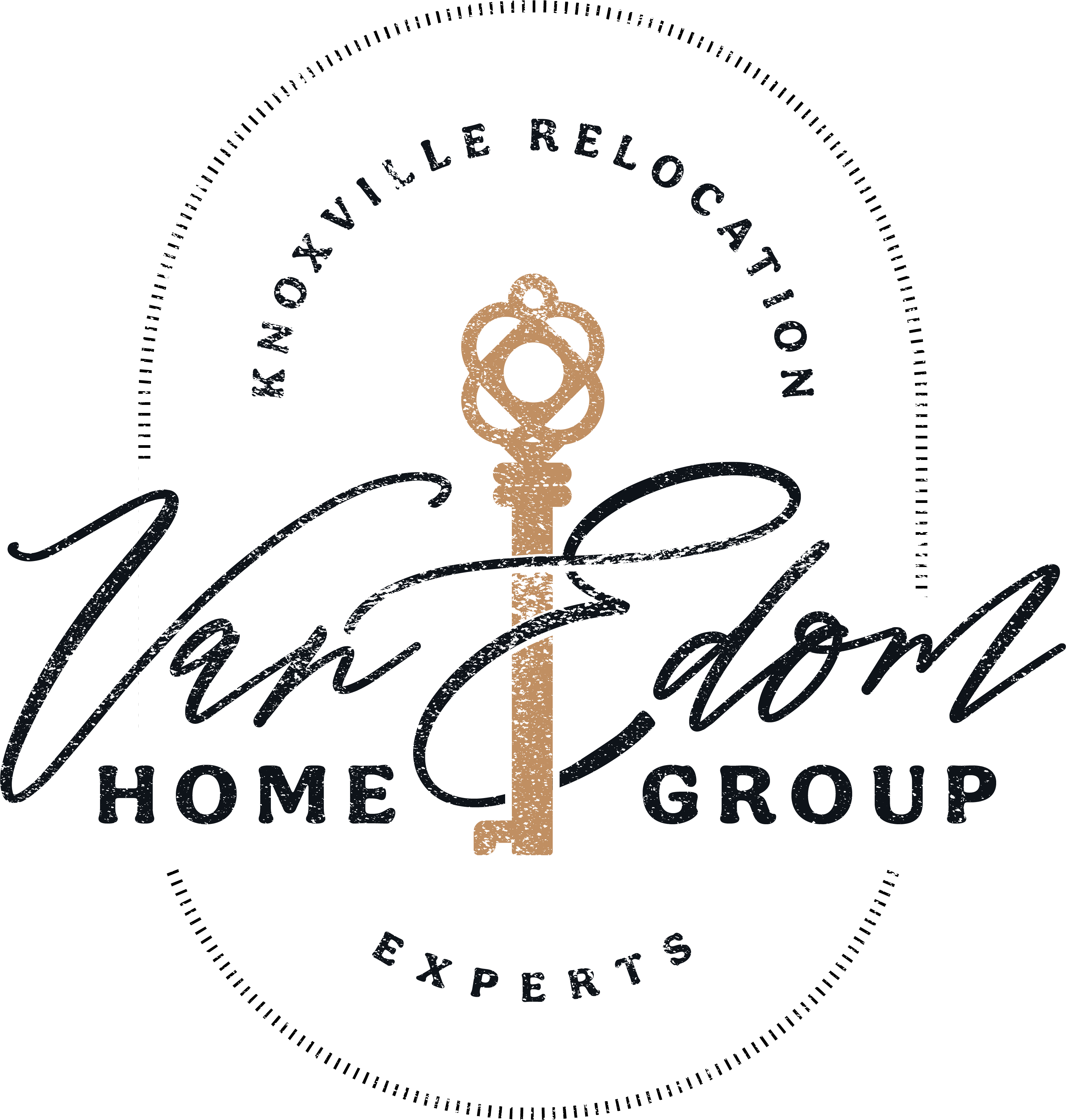
The home buying process can be complex and daunting, add to the the uncertainty and stress of relocating and it’s a recipe for hypertension, we kid. But in all seriousness, without an expert in the Knoxville market, moving to Knoxville can go exciting and life changing to overwhelming and dream shattering very quickly.
Not to worry, the relocation experts at the Van Edom Home Group are here to help guide you thru the process which typically involves the following steps:
- Determine your budget and get pre-approved for a mortgage.
- Find a real estate agent to help you search for properties and guide you through the process.
- Look for properties that meet your needs and preferences.
- Visit properties and narrow down your options.
- Make an offer on a property and negotiate the terms of the sale.
- Complete a home inspection to check for any issues with the property.
- Close on the sale and move into your new home.
It’s important to keep in mind that the process can vary depending on individual circumstances and the specific real estate market conditions in Knoxville at the time.
How to determine your home buying budget
To determine your home buying budget, you’ll need to consider a few different factors:
- Your income: Your income will play a big role in determining how much you can afford to spend on a home. Lenders will typically want to see that your mortgage payment is no more than 28% to 33% of your gross monthly income.
- Your credit score: Your credit score will also be a factor in determining how much you can borrow. Generally, the higher your credit score, the more you’ll be able to borrow.
- Your savings: You’ll need to have enough savings to cover the down payment on your home, as well as any closing costs. The typical down payment for a conventional loan is 20% of the purchase price, but there are options for lower down payments as well.
- Your debts: Your lender will also consider any existing debts you have when determining how much you can borrow.
- Your other expenses: Your other expenses, such as car payments, student loans, credit card debt and insurance, will also be considered to determine your budget.
- Your future plans and financial goals: It’s also important to consider your future plans and financial goals when determining your home buying budget, as you will want to ensure that you have enough money to cover your expenses in the long term.
Once you have a good understanding of all these factors, you can use a mortgage calculator to get an estimate of how much you’ll be able to borrow, and use that information to set your home buying budget. Luckily, we have mortgage calculator you can use right here.
Finding a Knoxville real estate agent
Having a good real estate agent by your side can make the relocation process much smoother and less stressful. A good agent will work to help you find the perfect home and make the transition to your new location as seamless as possible. There are several ways to find a real estate agent to help with home buying in Knoxville, TN:
- Ask for referrals: Ask friends, family, or acquaintances if they have any recommendations for a good real estate agent in the area.
- Search online: Look for real estate agents with a good online presence, such as a website or social media profiles. Check for reviews and testimonials from past clients.
- Check with professional organizations: Look for real estate agents who are members of professional organizations, such as the National Association of Realtors or the Knoxville Area Association of Realtors. These agents are typically held to a higher standard of ethics and professionalism.
- Interview multiple agents: Once you have a list of potential agents, schedule an initial meeting with each one to ask them about their experience, expertise, and approach to home buying. This will help you to find the agent who is the best fit for your needs and preferences.
- Check the agent’s license: Before you hire an agent, it’s important to check their license to ensure they are in good standing with the Tennessee Real Estate Commission.
When choosing a real estate agent, it’s important to find someone who is knowledgeable about the local market and has experience working with buyers like you. An agent who is a good listener, responsive, and communicative can help you navigate the home buying process with ease. Check out this article about the importance of having the right agent to help you make the best deal.
Begin the search for your dream Knoxville home
When searching for and purchasing a home in Knoxville, especially when relocating to the area, it’s important to take the following steps:
- Research the area: Before you start your search, it’s important to research different neighborhoods in Knoxville to determine which ones align with your lifestyle, budget and preferences.
- Ask you local real estate agent: A local real estate agent can help you navigate the local market and find properties that meet your needs and preferences. They can also provide valuable information about the area, such as schools, parks, and community amenities.
- Search for homes online: Use online resources such as real estate websites and apps to search for homes in the area. This will allow you to preview properties from the comfort of your own home, and narrow down your options before you visit in person.
Relocating can be challenging, but working with a local agent and doing your research can help make the process smoother. With the right agent and a good understanding of the local market, you should be able to find a home that meets your needs and preferences in Knoxville.
Viewing Potential Homes remotely
When visiting properties to buy remotely with the help of a real estate agent, there are several steps you can take:
- Virtual tours: Many real estate agents now offer virtual tours of properties, which allow you to see a property in detail without having to be there in person. This can be done through video conferencing or pre-recorded tours.
- Photos and videos: Your agent can also provide you with a lot of detailed photos and videos of the property. These can give you a good idea of the layout and condition of the property, as well as the neighborhood and surroundings.
- Agent’s descriptions: Your agent can also provide you with detailed descriptions of the property, including information about the neighborhood, schools, and local amenities.
- Property reports: You can request for property reports such as home inspection, termite inspection and other reports that will give you more information about the property’s condition and any potential issues that need to be addressed.
- Virtual meetings: Your agent can also set up virtual meetings with you to answer any questions you may have about the property and the buying process.
- Schedule In-person visit: Once you’ve narrowed down your options and are seriously considering a property, you can schedule an in-person visit with your agent. Your agent can walk you through the property and answer any remaining questions you may have.
It’s important to note that buying a property remotely can be more challenging, as you won’t be able to see the property in person until later in the process. However, with the help of a good real estate agent, you can still find a property that meets your needs and preferences.
Get a Home Inspection
A home inspection is an important step in the home buying process because it allows you to identify any potential issues with the property before you commit to purchasing it. A home inspector will thoroughly examine the property, inside and out, and provide you with a report detailing any issues they find. This report can help you make an informed decision about whether to move forward with the purchase or renegotiate the terms of the sale.
- Identifying unseen issues: A home inspector will be able to identify issues that may not be visible to the untrained eye, such as structural problems, electrical issues, and plumbing leaks.
- Safety concerns: A home inspector will be able to identify any potential safety hazards, such as carbon monoxide leaks, radon gas, and potential fire hazards.
- Maintenance and repair costs: A home inspector will be able to identify any issues that will require repairs or maintenance, and provide an estimate of the costs. This can help you budget for these expenses and negotiate the price of the home accordingly.
- Identifying code violations: A home inspector will be able to identify any code violations, such as lack of smoke detectors or improper wiring.
- Peace of mind: Completing a home inspection can provide you with peace of mind that you are making a sound investment, and that you are aware of any issues that may need to be addressed before you move in.
It’s important to note that, while a home inspection can identify many potential issues with a property, it is not a guarantee that the property is free from defects or issues. It’s important to keep in mind that a home inspection should be a part of your overall due diligence when buying a home.
The Closing
The process of closing and moving into your new home when relocating to Knoxville can involve several steps, including:
- Home inspection: As previously mentioned, it’s important to have a professional home inspector examine the property before closing to identify any potential issues.
- Closing costs: Before closing, you will need to pay closing costs, which may include lender fees, title fees, and other expenses.
- Final walk-through: Before closing, it’s a good idea to do a final walk-through of the property to ensure that any agreed upon repairs have been made and that the property is in the condition you expect.
- Closing: After the final walk-through, you will attend the closing, where you will sign the necessary paperwork, pay the closing costs, and take possession of the property.
- Moving: Once you have closed on the property, you can start planning your move. This may involve hiring a moving company, renting a moving truck, or enlisting the help of friends and family.
- Notifying the necessary parties: Once you have moved in, you will need to notify the necessary parties of your change of address, including the post office, utility companies, and any subscription services you are currently using.
- Setting up utilities: You will also need to set up utilities, such as electricity, gas, water, and internet service, at your new home.
- Finalizing paperwork: You may need to complete some additional paperwork to finalize your move, such as obtaining a driver’s license in your new state or updating your voter registration.
It’s important to note that the process of closing and moving into a new home when relocating can be complex, and having a good real estate agent can help you navigate the process and make the transition as seamless as possible.





